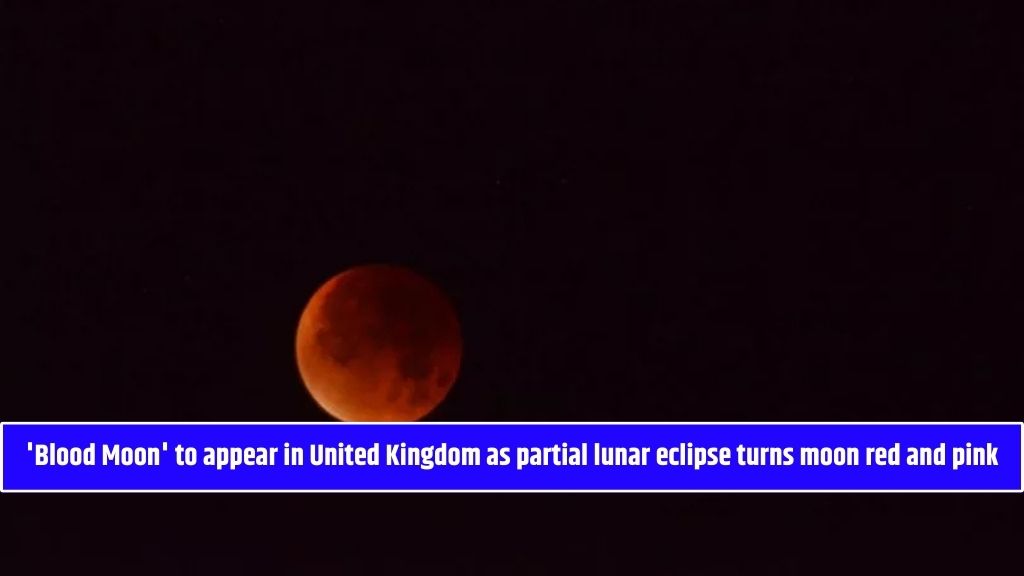Next month, the moon will glow with a striking rosy tint during a partial lunar eclipse, enchanting UK stargazers with the rare “Blood Moon” phenomenon. This captivating event occurs as the moon slips into Earth’s shadow, aligning perfectly with the Sun and Earth to create a vivid display of pink, red, and orange hues.
Normally a bright white against the night sky, the moon transforms during a lunar eclipse as Earth’s atmosphere scatters sunlight onto its surface. NASA likens this to “all the world’s sunrises and sunsets” illuminating the moon, producing its dramatic color shift.
On March 14, 2025, UK sky-watchers can witness this spectacle, though it will be a partial eclipse here, unlike the total eclipse visible in the US, Canada, and South America. The Manchester Evening News notes that Brits will still see the penumbral phase, where Earth’s faint outer shadow grazes the moon.
The Royal Observatory reports the moon will enter Earth’s outer shadow at 3:57 a.m. UK time, with the best viewing window around 6:19 a.m. However, by the eclipse’s peak at 6:58 a.m., the moon will dip below the horizon. No special gear is needed to enjoy this event—just find a dark spot with a clear western view to catch the orange-red glow.
Globally, visibility varies: North and South America will see the full eclipse, with some regions starting on March 13. NASA outlines distinct phases depending on location. Later in March, on the 29th, the UK will enjoy a partial solar eclipse. Another highlight comes on September 7, 2025, with a total lunar eclipse, peaking at 7:33 p.m. BST. The moon will rise during totality, though its low horizon position may challenge visibility.
The next partial lunar eclipse after this won’t occur until August 28, 2026, per the Royal Observatory. In 2025, four eclipses—two solar and two lunar—are slated, though not all will be visible from the UK. Time and Date details the lineup: a total lunar eclipse on March 13-14, a partial solar eclipse on March 29, a total lunar eclipse on September 7-8, and another partial solar eclipse on September 21. For the upcoming Blood Moon, clear skies and a little patience will reward UK observers with a celestial treat.
| Visit for More News and Updates | WSOA NEWS |














